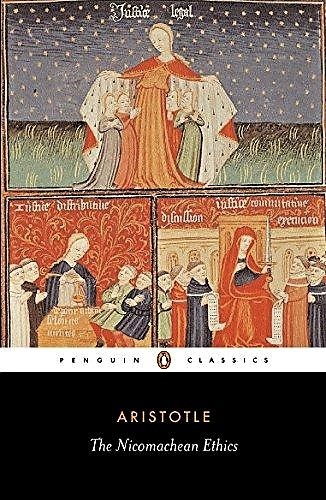The Nicomachean Ethics Book Summary
TL;DR
Aristotle's 'The Nicomachean Ethics' delves into the nature of happiness, defining it as the activity of the soul in accordance with virtue, and explores practical reasoning, pleasure, friendship, and the relation between individual virtue and society.
What is The Nicomachean Ethics about
Aristotle's 'The Nicomachean Ethics' is a seminal work that examines the nature of happiness, which he defines as 'activity of the soul in accordance with virtue.' This virtue encompasses both moral virtues (like courage and justice) and intellectual virtues (such as wisdom and knowledge). Written in ten books, the work also explores practical reasoning, the value of pleasure, various forms of friendship, and the interplay between individual virtue, society, and the State. The text has had a profound influence on Western ethical thought and continues to be a cornerstone in the study of ethics. This edition includes a revised translation by J.A.K. Thomson and Hugh Tredennick, along with a new introduction by Jonathan Barnes, offering contemporary readers an updated context for Aristotle's insights.
The Nicomachean Ethics 6 Key Takeaways
Eudaimonia
Eudaimonia, often translated as 'happiness,' is Aristotle's concept of the highest good. It entails success, fulfillment, and flourishing achieved through virtuous activity.
Virtue Ethics
Aristotle posits that virtue is pivotal for eudaimonia. He distinguishes between moral virtues (courage, generosity) and intellectual virtues (wisdom, knowledge).
Practical Reasoning
Aristotle discusses the role of practical reasoning in ethical behavior, emphasizing that virtuous actions are context-dependent and not guided by universal rules.
Value of Pleasure
While pleasure is important, Aristotle argues that it must align with virtuous activities to contribute to true happiness.
Forms of Friendship
Aristotle categorizes friendship into three types: those based on utility, pleasure, and virtue, with virtuous friendships being the highest form.
Individual and State
He explores how individual virtue contributes to the well-being of society and the State, emphasizing the interdependence of personal ethics and communal life.
Top The Nicomachean Ethics Quotes
- 'One swallow does not make a summer; neither does one day. Similarly neither can one day, or a brief space of time, make a man blessed and happy.'
- 'Happiness is the meaning and the purpose of life, the whole aim and end of human existence.'
Who should read The Nicomachean Ethics?
This book is ideal for students of philosophy, ethics, and political science, as well as anyone interested in understanding the foundations of Western ethical thought. Readers will gain profound insights into the nature of happiness, virtue, and the importance of ethical living.
The Nicomachean Ethics Best Reviews
- 'A foundational text in Western philosophy, 'The Nicomachean Ethics' remains relevant today, offering deep insights into the nature of happiness and ethical living.' - The Guardian
- 'Aristotle's ethics provides a robust framework for understanding human flourishing, making this work timeless.' - The New York Times
People also liked these summaries
The Nicomachean Ethics FAQs
What is the main idea of book I of Aristotle's Nicomachean Ethics?
The central concept of book I is eudaimonia, which means happiness, success, and flourishing, viewed as the highest good and ultimate aim of human life.
What is the main point of Nicomachean Ethics?
The main point is to explore the nature of human action and ethics, rooted in eudaimonia, defining it as the highest good that humans seek for its own sake.
How many books of Nicomachean Ethics are there?
There are ten separate books in 'The Nicomachean Ethics,' each addressing different aspects of ethical life.
